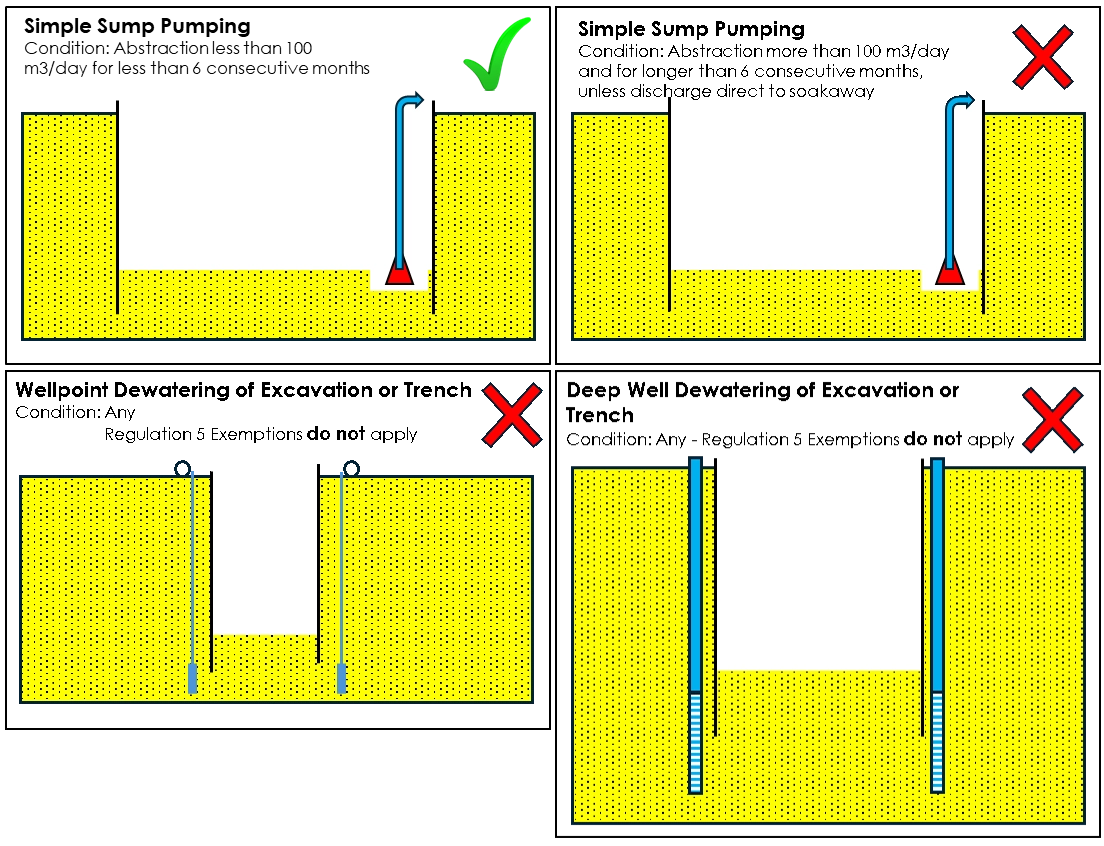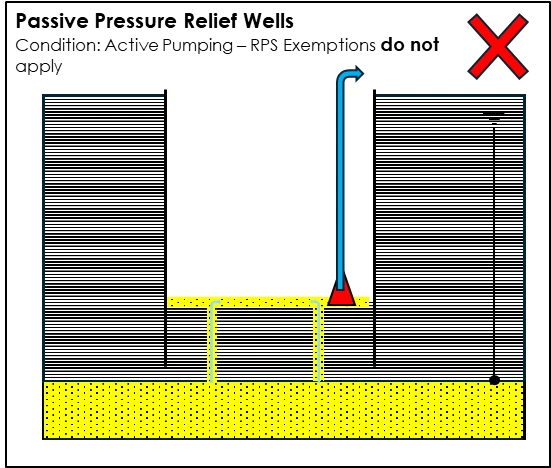Related Pages
Groundwater Licences (England & Wales)
Groundwater Abstraction
PDF: Dewatering Advice Flowchart on Abstraction Regulatory Position – England & Wales
From 1st January 2018, the Water Abstraction (Transitional Provisions) Regulations 2017 removed previous exemptions for construction dewatering from environmental regulation control.
Although there are certain exemptions for construction dewatering under the Water Abstraction and Impounding (Exemptions) Regulations 2017, it is a common misunderstanding that this applies to specialist dewatering methods. Regulation 5 exemptions do not apply to boreholes, wells or wellpoints. For projects in England & Wales where dewatering is required a groundwater abstraction licence needs to be in place.
Legally, you cannot commence pumping until all required licences and consents are in place. Therefore, it is important that you are aware of this risk and leave sufficient time to obtain the required licences. Stuart Wells can oversee and undertake the licencing application process for you. Please contact us for more information and to discuss how we can assist.
Construction Dewatering Scenarios – Abstraction Licence Exemptions Guide

 A temporary licence which only lasts 28 days and cannot be renewed.
A temporary licence which only lasts 28 days and cannot be renewed.
Cost: EA application fee is £135 plus volumetric charge.
For longer abstraction periods you will require either:- A transfer licence with transfer of groundwater from one environmental source or another without intervening use.
Cost: EA fee £1,500 per application. - A full abstraction licence, with discharge direct to utility outfall. EA Cost: £HIGH. Based on aquifer condition and a volumetric charge.
Information on and updated EA fees and charges can be accessed from the following link: Environmental permits and abstraction licences: tables of charges.
Based on out extensive experience working with the Environment Agency we recommend submitting a high-quality application to gain the required permits as quickly as possible. To optimise your chances of success, we strongly advise collaborating with our team for professional services.
We would recommend using the EA enhanced pre-application service, with supporting information consisting of a Dewatering Technical Note, Water Feature Survey and Hydrogeological Impact Assessment (HIA) in accordance to guidelines Hydrogeological Impact Appraisal for Dewatering Abstractions” 2007 Science Report – SC040020/SR1 at which point the EA will advise on any other information they will be required to support a full application. Please contact us for more information and to discuss your situation.
Groundwater Discharge
Discharge to Surface Water (Rivers, Streams etc...)
Environmental Regulations regarding discharge of groundwater from temporary dewatering operations to surface water are set out in EA Guidelines document RPS 262 Temporary dewatering from excavations to surface water: RPS 261. There are listed exemption conditions, and we would advise you contact us for more information and to discuss how we can assist. To simplify, the RPS potentially allows groundwater discharge to surface water for no more than 3 consecutive months provided the discharge is uncontaminated and clean with plans and control measures for silt, disposal and use machinery in excavations while dewatering is taking place. There is also a requirement to keep records for 2 years that show you have complied with the RPS .
Should the discharge period go beyond 3 consecutive months, or the discharge point is less than 500m upstream of a SSSI, SAC, SPA, site of community importance or Ramsar site. RPS 262 does not apply, and a bespoke environment discharge permit will be required. New bespoke environmental permit: application forms (England).
Discharge to Utility Outfall (Sewer etc...)
Should discharge be to a utility outfall you do not need an environmental discharge permit. However, a trade effluent discharge permit from the utility company or authority will be required. Most water companies use a wholesaler to manage the application and once you have a consent, you must comply with all its conditions. Normally a cost/m3 of discharge applies with regular inspection and monitoring. We would advise you contact us for more information and to discuss how we can assist.

